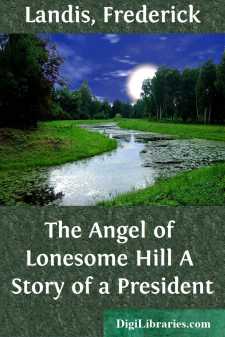Categories
- Antiques & Collectibles 13
- Architecture 36
- Art 48
- Bibles 22
- Biography & Autobiography 813
- Body, Mind & Spirit 142
- Business & Economics 28
- Children's Books 12
- Children's Fiction 9
- Computers 4
- Cooking 94
- Crafts & Hobbies 4
- Drama 346
- Education 46
- Family & Relationships 57
- Fiction 11828
- Games 19
- Gardening 17
- Health & Fitness 34
- History 1377
- House & Home 1
- Humor 147
- Juvenile Fiction 1873
- Juvenile Nonfiction 202
- Language Arts & Disciplines 88
- Law 16
- Literary Collections 686
- Literary Criticism 179
- Mathematics 13
- Medical 41
- Music 40
- Nature 179
- Non-Classifiable 1768
- Performing Arts 7
- Periodicals 1453
- Philosophy 64
- Photography 2
- Poetry 896
- Political Science 203
- Psychology 42
- Reference 154
- Religion 513
- Science 126
- Self-Help 84
- Social Science 81
- Sports & Recreation 34
- Study Aids 3
- Technology & Engineering 59
- Transportation 23
- Travel 463
- True Crime 29
The Angel of Lonesome Hill A Story of a President
by: Frederick Landis
Description:
Excerpt
It was a handful of people in the country—a simple-hearted handful. There was no railroad—only a stage which creaked through the gullies and was late. Once it had a hot-box, and the place drifted through space, a vagrant atom.
Time swung on a lazy hinge. Children came; young folks married; old ones died; Indian Creek overflowed the bottom-land; crops failed; one by one the stage bore boys and girls away to seek their fortunes in the far-off world; at long intervals some tragedy streaked the yellow clay monotony with red; January blew petals from her silver garden; April poured her vase of life; August crawled her snail length; years passed, leaving rusty streaks back to a dull horizon.
The sky seemed higher than anywhere else; clouds hurried over this place called "Cold Friday."
A mile to the east was "Lonesome Hill." Indians once built signal fires upon it, and in this later time travellers alighted as their horses struggled up the steep approach. At the top was a cabin; it was whitewashed, and so were the apple-trees round it. A gourd vine clung to its chimney; pigeons fluttered upon its shingles, and June flung a crimson rose mantle over its side and half-way up the roof.
One wished to stop and rest beneath its weeping willow by the white stone milk house.
Those who passed by day were accustomed to a woman's face at the window—a calm face which looked on life as evening looks on day—such a face as one might use to decorate a fancy of the old frontier. Those who passed by night were grateful for the lamp which protested against Nature's apparent consecration of the place to solitude.
This home held aloof from "Cold Friday"; many times Curiosity went in, but Conjecture alone came out, for through the years the man and woman of this cabin merely said, "We came from back yonder." Nobody knew where "yonder" was.
But the law of compensation was in force—even in "Cold Friday." With acquaintanceships as with books, the ecstasy of cutting leaves is not always sustained in the reading, and the silence of this man and woman was the life of village wonder.
It gave "Friday's" chimney talk a spice it otherwise had never known; the back log seldom crumbled into ashes till the bones of these cabin dwellers lay bleaching on the plains of "Perhaps."
John Dale was seventy-five years or more, but worked his niggard hillside all the day, and seldom came to town. His aged wife was kind; the flowers of her life she gave away, but none could glance upon the garden. She seemed to know when neighbors were ill; hers was the dignity of being indispensable. Many the mother of that region who, standing beneath some cloud, thanked God as this slender, white-haired soul with star shine in her face, hurried over the fields with an old volume pasted full of quaint remedies.
She made a call of another kind—just once—when the "Hitchenses" brought the first organ to "Cold Friday."
She remained only long enough to go straight to the cabinet, which the assembled neighbors regarded with distant awe, and play several pieces "without the book." On her leaving with the same quiet indifference, Mrs. Ephraim Fivecoats peered owlishly toward Mrs. Rome Lukens and rendered the following upon her favorite instrument:
"Well!...


